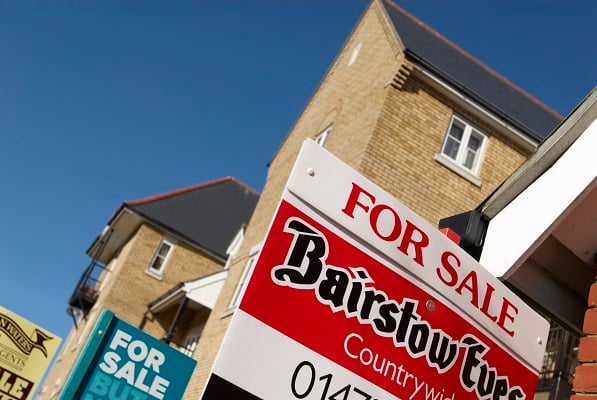For the second consecutive month, home sellers in the UK have increased their asking prices, suggesting a market comeback.
The average price of a property put up for sale rose almost 1% in February, signalling renewed optimism. This apparent resurgence can be attributed to a pivotal factor: the likelihood of incoming cheaper borrowing costs.
As the Bank of England is expected to lower interest rates, potential homebuyers are lured into the market by the prospect of more affordable mortgage rates.
This reduction in the cost of borrowing has a twofold effect: it makes homeownership more accessible to a broader segment of the population, and it incentivizes existing homeowners to consider upgrading or expanding their property portfolios.
The result is a surge in demand, providing a vital injection of vitality into a market that has been weathering a storm.
This possible resurgence in the property market has far-reaching implications for households, businesses, and investors, both in the UK and overseas.
For households
For households, the buoyancy in the property market translates into newfound opportunities and challenges. As property prices rise, existing homeowners may experience an increase in the value of their homes, potentially boosting their overall net worth. This, in turn, can instil a sense of financial security and incentivize further investment in home improvements or other expenditures.
On the flip side, aspiring first-time buyers may find themselves grappling with the challenge of entering a market where property prices are on the rise.
While cheaper borrowing costs offer some relief, the overall affordability of homes becomes a critical consideration.
The government and industry stakeholders need to address this delicate balance to ensure that homeownership remains an achievable goal for a wide spectrum of the population.
For businesses
The revival in the property market has cascading effects on businesses, especially those linked to the real estate and construction sectors. As demand for properties rises, construction activities gain momentum, potentially leading to job creation and increased economic activity.
Home-related industries, such as furniture, appliances, and home improvement services, could experience a surge in demand, contributing to a broader economic recovery.
Businesses involved in property development and investment may find the current environment conducive for strategic expansion and diversification.
However, it’s crucial for businesses to approach this period with a degree of caution, keeping an eye on market sustainability and potential challenges that may arise as the economy undergoes dynamic shifts.
For investors in the UK and overseas
Investors, both domestic and international, keenly observe the potential revival of the UK property market as it presents a spectrum of investment opportunities.
With cheaper borrowing costs investors are likely to see this as an opportune time to diversify portfolios, tapping into a market showing signs of resilience and recovery.
However, with the potential rewards come inherent risks. Fluctuations in property values, evolving regulatory landscapes, and broader economic uncertainties require investors to adopt a nuanced and adaptive approach.
Rigorous due diligence, a keen understanding of market dynamics, and a diversified investment strategy are imperative to navigate the complexities of the real estate market successfully.
As the market enters into an anticipated resurgence, stakeholders must remain vigilant, balancing optimism with a pragmatic understanding of the ever-shifting economic environment.






Leave a Comment